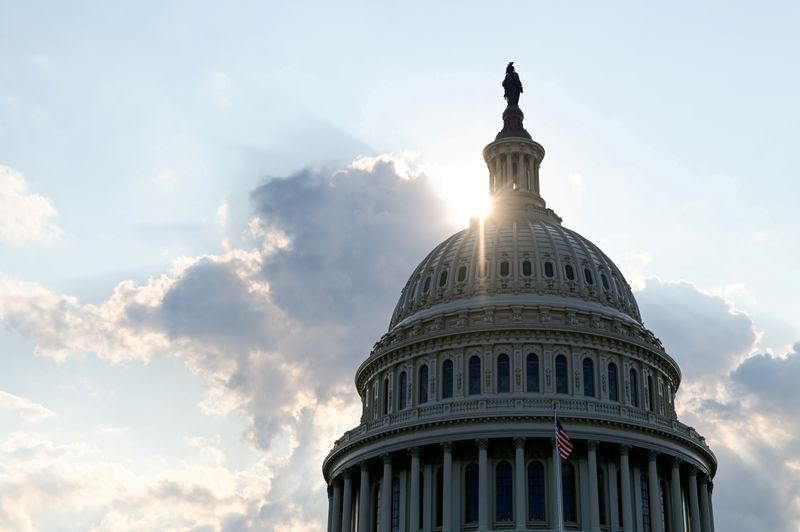By Jason Lange, Megan Davies and David Randall
WASHINGTON (Reuters) -A standoff in Washington between President Joe Biden's Democrats and Republicans is threatening to trigger a financial and economic meltdown if Congress fails to act by about Oct. 18, when the Treasury Department expects to run out of cash to cover its expenses.
This kind of brinksmanship has become a regular feature of U.S. politics over the past decade. But the familiar fight belies the serious dangers the world's largest economy would face if it were to default on its debts.
WHY WOULD HITTING THE DEBT CEILING BE CATASTROPHIC?
Once Washington runs into its $28.4 trillion borrowing limit, it will only have incoming tax receipts for paying its bills. And because it currently borrows more than 20 cents for every dollar it spends, the Treasury would start missing payments owed to money lenders, citizens or both.
Shockwaves would ripple through global financial markets as investors question the value of U.S. bonds, which are key building blocks for the world's financial system.
Domestic spending cuts would push the U.S. economy into recession as the government missed payments on everything from Social Security payments for the elderly to soldiers' salaries. A financial crisis would only worsen the economic troubles, and economists expect millions of Americans would lose their jobs.
WHAT OPTIONS DOES WASHINGTON HAVE?
Most experts say the simplest thing would be to abolish the borrowing limit altogether.
First enacted in 1917, the debt ceiling went from being an occasional political football in the late 20th century to a full-blown crisis in 2011, when political dysfunction nearly triggered a default.
Some observers say the debt ceiling itself violates the U.S. Constitution. But if the Biden administration invoked that argument, a legal challenge would follow.
While the administration has not said what it will do if the borrowing limit isn't raised, the U.S. Treasury's 2011 contingency plans offer a baseline scenario. During that year's political crisis, the plan prioritized paying financial market creditors to stave off a debt default while pulling back sharply on the government's other spending obligations -- which would include social welfare payments to the old, sick and indigent.
ARE INVESTORS ALREADY SPOOKED?
They might just be getting started. Despite recent warnings from Federal Reserve and Treasury officials, market reaction to the political impasse has been subdued. The Standard & Poor's 500 stock index slid more than 2% on Tuesday, in part because of debt ceiling worries, but rebounded slightly on Wednesday. Investors generally presume Biden's Democrats will resolve the crisis.
Still, the market for Treasury bills is showing signs of concern. Michael Purves, chief executive at Tallbacken Capital Advisors in New York, wrote in a research note on Monday that investors were now demanding higher yields for Treasury bills due in one month compared to bills due in three months because the latter "presumably won't be burdened by default risk."
That is, some investors are worried the government could miss payments for a time.
HOW BAD DID IT GET IN 2011?
During the 2011 debt ceiling crisis - between then-President Barack Obama's Democrats and the right-wing Tea Party faction of Republicans - the S&P 500 plunged almost 20%. It later recovered, but investors were rattled and the Standard & Poor's credit rating agency put U.S. politicians on watch, downgrading America's credit rating for the first time in history.

WHAT ABOUT MINTING A GIANT COIN?
One far-fetched idea floated by policy wonks during the 2011 crisis was for the Treasury to mint a $1 trillion commemorative coin. Officials would deposit the coin at the Federal Reserve and use the funds to pay government bills, thus avoiding default. President Obama later acknowledged his administration discussed the idea, and on Tuesday House of Representatives Speaker Nancy Pelosi said U.S. Representative Jerry Nadler of New York had also brought it up. Earlier this month, Biden's White House rejected the notion.